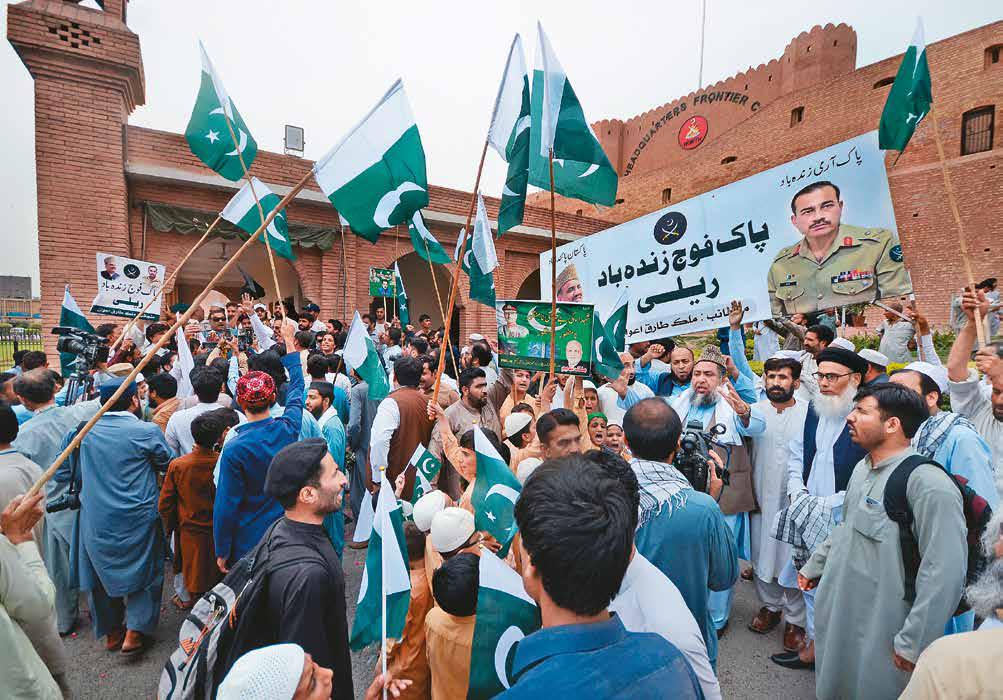
HAVE there been times when civil-military relations in India were so strained that a military coup was -justified? asks Aditya Sondhi, a senior advocate practising at the Supreme Court and the Karnataka High Court, in his new book Poles Apart: The Military and Democracy in India and Pakistan. Sondhi's book is a timely addition to the existing literature on civil-military relations in South Asia. It compares the roles the military has played in India and Pakistan and their impact on the arc of democracy in both countries. It also devotes a chapter to Bangladesh currently in the grip of a historic political churning-and the country's tryst with both democracy and military rule. Poles Apart evolved from Sondhi's research for his PhD thesis, which focused on the interface between the military and democracy in India and Pakistan during 1947-2008. The road from thesis to book was paved with revisions, updates, and a chapter on post-2008 developments.
Some of the pertinent questions Poles Apart raises and investigates are: Is there a connection between the "non-event" of a coup and the growth of democracy? Why has Pakistan been under military rule for long periods and how has this affected the survival of democracy? How did the Pakistani military get actively involved in politics and why does it wield so much influence in the country’s political space?
In the book’s well-crafted Introduction, Sondhi reminds readers that democracy is a complex business and nation states, unique. In this context, comparative politics may be a “theory in transition”, but it definitely has its uses. An analysis of similar institutions in India and Pakistan such as the judiciary, the bureaucracy, political parties, the electoral process, the culture and belief systems, and the role of the military and the extent of its intervention helps to gauge the “health of democracy” in the two countries.
Denne historien er fra September 21, 2024-utgaven av Outlook.
Start din 7-dagers gratis prøveperiode på Magzter GOLD for å få tilgang til tusenvis av utvalgte premiumhistorier og 9000+ magasiner og aviser.
Allerede abonnent ? Logg på
Denne historien er fra September 21, 2024-utgaven av Outlook.
Start din 7-dagers gratis prøveperiode på Magzter GOLD for å få tilgang til tusenvis av utvalgte premiumhistorier og 9000+ magasiner og aviser.
Allerede abonnent? Logg på

Layers Of Lear
Director Rajat Kapoor and actor Vinay Pathak's ode to Shakespeare is an experience to behold

Loss and Longing
Memories can be painful, but they also make life more meaningful

Suprabhatham Sub Judice
M.S. Subbulakshmi decided the fate of her memorials a long time ago

Fortress of Desire
A performance titled 'A Streetcart Named Desire', featuring Indian and international artists and performers, explored different desires through an unusual act on a full moon night at the Gwalior Fort

Of Hope and Hopelessness
The body appears as light in Payal Kapadia's film

Ruptured Lives
A visit to Bangladesh in 2010 shaped the author's novel, a sensitively sketched tale of migrants' struggles

The Big Book
The Big Book of Odia Literature is a groundbreaking work that provides readers with a comprehensive introduction to the rich and varied literary traditions of Odisha

How to Refuse the Generous Thief
The poet uses all the available arsenal in English to write the most anti-colonial poetry

The Freedom Compartment
#traindiaries is a photo journal shot in the ladies coaches of Mumbai locals. It explores how women engage and familiarise themselves with spaces by building relationships with complete strangers

Love, Up in the Clouds
Manikbabur Megh is an unusual love story about a man falling for a cloud. Amborish Roychoudhury discusses the process of Manikbabu's creation with actor Chandan Sen and director Abhinandan Banerjee